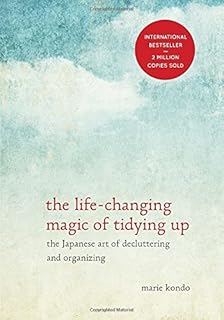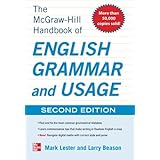dystonia : Related Words Words similar in meaning to dystonia
- torsion dystonia«
- segmental dystonia«
- oromandibular dystonia«
- multifocal dystonia«
- generalized dystonia«
- focal dystonia«
- dopa-responsive dystonia«
- cranial dystonia«
- twist«
- symptom«
- procyclidine«
- pump«
- postures«
- treatment«
- pleurothotonus«
- patient«
- neurological«
- muscle«
- focal dystonias«
- movement«
- basal ganglion«
- levodopa«
- baclofen«
- laevodihydroxyphenylalanine«
- cramping«
- jerk«
- medication«
- hemidystonia«
- effect«
- disorder«
- minor exertion«
- contraction«
- primary dystonia«
- biopterin«
- disease«
- acute dystonic reaction«
- dystonia musculorum deformans«
- cerebellum«
- purkinje neuron«
- adjacent muscle«
- affected muscle«
- denervation«
- toxin«
- relief«
- brain«
- syndrome«
- pain«
- deep brain stimulation«
- diphenhydramine«
- anticholinergic«
- hand«
- trembling«
- mood swing«
- leg«
- type a«
- body«
- dopamine«
- physical therapy«
- ot«
- activity«
- upper extremity splinting«
- truncal dystonia«
- terminological descriptor«
- term memory loss occur«
- sustained fist clenching«
- subsequent tramatic injury«
- sterling syndrome«
- segmental dystonias«
- relentless muscle spasm due«
- refractory dystonia«
- precision hand movement«
- potential treatment intervention«
- parkinsonism aspect«
- parkinson agent«
- normal birth history«
- neuromuscular movement disorder«
- neurological movement disorder syndrome«
- movement inhibitory technique«
- isometric muscle endurance«
- idiopathic torsion dystonia«
- heredodegenerative dystonias«
- focal cervical dystonia«
- dyt1 dystonia«
- dystonia phenotype«
- dystonia aspect«
- dysport injection«
- direct nerve injury«
- db therapy«
- common dystonias«
- chemodenervation botulinum neurotoxin injection«
- brain concerned«
- botulin toxin injection«
- blepharospasmodic contraction«
- antidopaminergic medication«
- anticholinergic role)..«
- additional movement disorder«
- additional classification scheme«
- central nervous system«
- drug«
- huntington«
- wladyslaw sterling«
- type b toxin«
- treatment worth«
- thecal space«
- significant pain similar«
- significant muscle pain«
- repetitive muscle contraction«
- precision muscle coordination«
- ouabain concentration«
- other motor symptom«
- oppenhiem«
- movement retraining«
- misfunction«
- lower ouabain concentration«
- internal shoulder rotation«
- dystonic symptom«
- clinical complexity«
- ciz1«
- body distribution«
- anethesia«
- individual«
- thap1«
- taubman approach«
- painful cramping«
- ouabain block«
- live mouse result«
- dystonia syndrome«
- dystonia symptom«
- different medication«
- continuous muscle«
- baclofen pump«
- adaptive lifestyle«
- activity performance«
- factor«
- risk«
- slc20a2«
- rapid onset dystonia parkinsonism«
- postural training«
- nerve communication«
- intrinsic activity mode«
- frequent throat clearing«
- foot inversion«
- atp1a3 gene«
- ulegyria«
- seizure medicine«
- secondary dystonia«
- risky form«
- physiotherapy rehabilitation«
- myoclonic dystonia«
- gnal«
- dynamic strength«
- atp1a3«
- writer ’s cramp«
- sensory trick«
- parkinsonian drug«
- lip smacking«
- independent disorder«
- disturbed sleep pattern«
- cerebellar purkinje neuron«
- physical therapy intervention«
- meige«
- direct symptom«
- carbidopa/levodopa«
- tardive dystonia«
- disease duration«
- common clinical presentation«
- various treatment«
- sinemet«
- patients’ quality«
- many sufferer«
- electrical sensor«
- ionic gradient«
- firing speed«
- body perception«
- portion«
- neuromuscular electrical stimulation«
- fine motor coordination«
- childhood onset«
- form«
- autoimmune mechanism«
- involuntary muscle movement«
- intentional activity«
- homeostatic«
- flatau«
- dystonias«
- oculogyric crisis«
- computational element«
- responsive dystonia«
- benzatropine«
- hermann oppenheim«
- edward flatau«
- continuous pain«
- joint mobilization«
- arm«
- brain condition«
- onset«
- progressive relaxation«
- gait training«
- education forum«
- benztropine«
- autosomal dominant«
- abnormal posturing«
- neuroleptic drug«
- total disability«
- research attention«
- regular dos«
- muscle spasticity«
- botulinum toxin injection«
- weakness«
- ropinirole«
- temporomandibular joint disorder«
- splinting«
- potassium pump«
- effectiveness«
- type b.«
- stress«
- torticollis«
- knee flexion«
- therapeutic exercise«
- other gene«
- mirror effect«
- variable nature«
- blepharospasm«
- clinical characteristic«
- moderate exercise«
- movement therapy«
- extrapyramidal symptom«
- supportive therapy«
- early symptom«
- dopamine antagonist«
- bromocriptine«
- other mechanism«
- nerve signal«
- conversion disorder«
- repetitive movement«
- muscle fatigue«
- hypertonia«
- dopamine agonist«
- essential tremor«
- structural abnormality«
- neuroleptic«
- mental confusion«
- d2 receptor«
- neurotransmitter acetylcholine«
- tablet form«
- environmental modification«
- temporary paralysis«
- reference data«
- msnbc.com«
- mental stress«
- comfortable position«
- treatment strategy«
- balance«
- restless leg syndrome«
- clonazepam«
- relaxation technique«
- oral medication«
- aminobutyric acid«
- study design«
- assistive device«
- current treatment«
- constant movement«
- chorea«
- chlorpromazine«
- botox«
- affected person«
- accurate diagnosis«
- dopa«
- missense mutation«
- symptom similar«
- ready availability«
- carpal tunnel syndrome«
- neurological symptom«
- surgery«
- penmanship«
- psychological stress«
- parkinson ’s disease«
- bracing«
- physical trauma«
- types«
- main mechanism«
- tourette«
- definitive diagnosis«
- secondary effect«
- muscle relaxant«
- modern definition«
- genetic predisposition«
- atropine«
- respond«
- motor function«
- diazepam«
- normal activity«
- emg«
- neurological disease«
- short temper«
- grinding«
- lead poisoning«
- specific person«
- pharmaceutical drug«
- clinical feature«
- blurred vision«
- leaking«
- occupational therapist«
- daily living«
- antihistamine«
- difficulty«
- adl«
- encephalitis«
- cosmetic surgery«
- gaba«
- lower limb«
- fungal infection«
- brain activity«
- significant challenge«
- multiple type«
- ataxia«
- sign«
- sedation«
- housekeeping«
- catheter«
- public broadcasting service«
- brain function«
- twisting«
- combination«
- neuro«
- jewish child«
- sydenham«
- neurosis«
- cold temperature«
- sample size«
- occupational therapy«
- musician«
- diaphragm«
- soft tissue«
- alternative method«
- meningitis«
- surgical procedure«
- physiotherapy«
- sufferer«
- blood flow«
- gold standard«
- tremor«
- positive result«
- condition«
- bathing«
- inhibitor«
- environmental condition«
- physical activity«
- risk factor«
- spinal cord«
- head injury«
- significant improvement«
- pillow«
- causes«
- poisoning«
- posture«
- sodium«
- paralysis«
- nervous system«
- research«
- blood vessel«
- physical«
- breathing«
- exhaustion«
- recent research«



